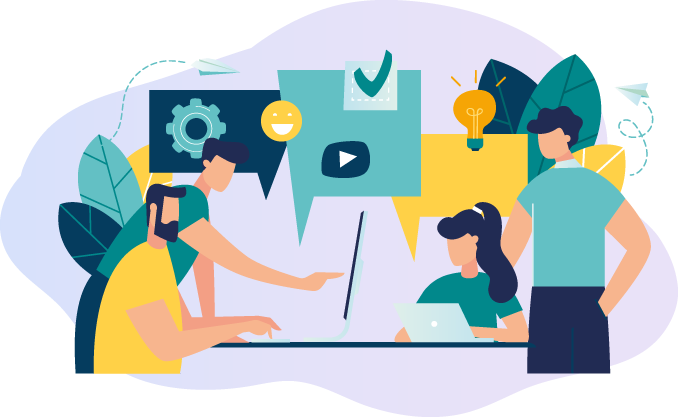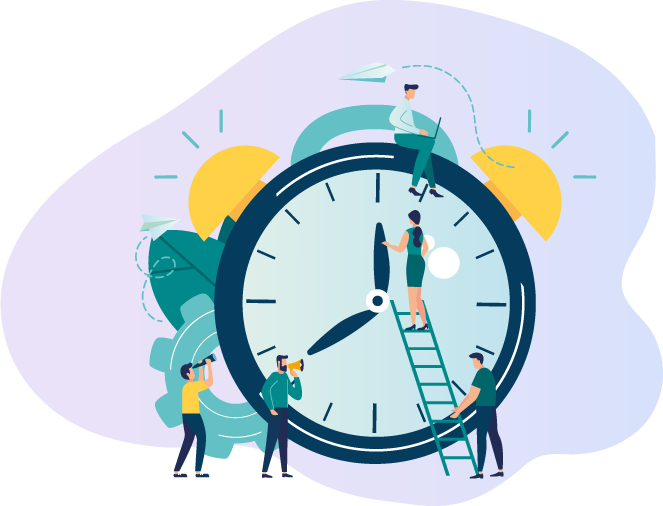Who's a Learning and Development Specialist?
Do you love encouraging your friends to do their best? Do you like helping your friends in a group study? Do you create hacks that help others understand class notes? If so, consider a career in learning and development!
As a learning and development specialist, you will train employees at different junctures of their careers. You may train a new hire at their orientation, or help existing employees learn new technology and projects. You will design training programmes and manuals, and create instructional videos and presentations. You could be a part of multiple fields, such as education, instructional design or business. Curious to know more about this career? Click here to read more.
What will you do?
Discover your Ideal future
Get expert guidance and mentorship towards your perfect fit.
Where will you work?
How do you get there?
What skills would you need?
How do you make it to the top ranks?
Intern
To understand how things work in the field, intern with any company including a HR consultancy or a training institute. You would learn the basics of the field including how to train employees, how to develop training programmes, etc.
Junior Learning and Development Specialist
At a junior level, you would be reporting to your manager and will be working under their guidance. You will learn the basics of the job and would be responsible for designing and implementing training programmes based on the needs of the organisation. You would also be creating e-learning packages and training presentations.
Senior Learning and Development Specialist
At a senior level, you would be heading a team of junior training specialists and training them. You would be working with various departments to understand and organise programmes that enhance employee development. You would also be responsible for producing materials for in-house courses. Reviewing and monitoring the performance of the trainees would also be an important part of your job.
Manager
At a managerial level, you would be leading a team of junior and senior specialists and would be assigning work to them. You would manage learning logistics and create an effective learning environment. Your job would also include introducing activities and events targeting the learning group. You would report on training sessions to the stakeholders where you would talk about attendance, learner feedback, outcome, etc.
Head Trainer and Developer
You would be responsible for finding and commissioning the right trainers and facilitating training for new and current employees. You would work closely with different teams to identify and prepare training events. Budgeting the events and programmes would be an important part of your job role.
Pursuing your career locally VS abroad
With the business environment in India changing, the demand for learning and development personnel has witnessed a rise. Businesses today are constantly looking to upskill and reskill their workforce to survive the ever-changing market trends. In terms of education, you can pursue either an MBA in HR from institutes like Tata Institute of Social Science, Indian Institute of Management, International School of Business and Media and others or you can opt to do a certification course after your graduation from institutes such as KPMG, Indian Institute of Learning and Development, etc. The fee for pursuing MBA in training and development would cost you anywhere between INR 5,00,000- INR 10,00,000.
If you want to pursue training and development in IT, pursue an MTech in Computer Science from institutes like IIT – Kanpur, IIT – Bombay, etc. The course could cost you anywhere in between INR 1,00,000 – INR 2,00,000.
Pursuing a learning and development course abroad will help you increase your knowledge and skills. You get a chance to interact with people from different countries and develop your communication skills. This will further help you develop your interpersonal skills. Top colleges or institutes abroad that are well-known for offering learning and development courses are the University of Minnesota, Columbia University, University of Glasgow, University of New England and others. Pursuing these courses abroad will cost you anywhere between INR 20,00,000- INR 30,00,000.
How much would you get paid?
What are your career options?
Discover your Ideal future
Get expert guidance and mentorship towards your perfect fit.











